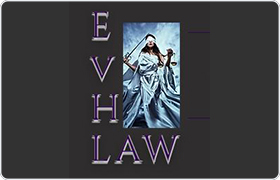Cedar Crest Misdemeanor Lawyer, New Mexico
Sponsored Law Firm
-
 x
x

Click For More Info:
-
Law Office Of Elizabeth V. Han
2601 Wyoming Blvd NE Suite 106 Albuquerque, NM 87111» view mapCriminal Defense and Divorce & Family Law Trust Our Experienced Team
Let the Law Office Of Elizabeth V. Han handle your legal matters.
800-647-3590
Not enough matches for Cedar Crest Misdemeanor lawyer.
Below are all Cedar Crest Criminal lawyers.
Harry Ira Zimmerman
Military & Veterans Appeals, Federal, Criminal, Children's Rights
Status: In Good Standing
Marc Allan Reitman
Criminal, Civil Rights, Children's Rights, Constitutional Law
Status: In Good Standing
 Elizabeth Han Albuquerque, NM
Elizabeth Han Albuquerque, NM Practice AreasExpertise
Practice AreasExpertise
